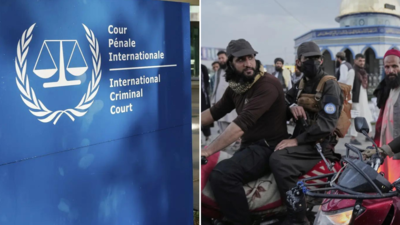
The International Criminal Court On Tuesday issued arrest warrants for two senior Taliban leaders, accusing them of crimes against humanity for systematically persecuting women, girls, and others who defied the group’s strict gender policies.
The warrants named Haibatullah Akhundzada, the Taliban’s Supreme Leader, and Abdul Hakim Haqqani, the regime’s Chief Justice.According to a statement from the ICC’s Pre-Trial Chamber II, there are “reasonable grounds to believe” that both men were responsible for ordering, inducing, or soliciting crimes of persecution on gender and political grounds. These crimes are alleged to have taken place across Afghanistan from 15 August 2021—when the Taliban seized power through at least 20 January 2025.“While the Taliban have imposed certain rules and prohibitions on the population as a whole, they have specifically targeted girls and women by reason of their gender, depriving them of fundamental rights and freedoms,” the Chamber said.The ICC detailed a broad and ongoing pattern of repression, stating that the Taliban had “severely deprived, through decrees and edicts, girls and women of the rights to education, privacy and family life and the freedoms of movement, expression, thought, conscience and religion.”
The court also highlighted abuses against those perceived to be “allies of girls and women,” as well as individuals whose gender identity or sexual expression diverged from Taliban norms.The judges said that gender persecution under Article 7(1)(h) of the Rome Statute includes not only direct violence but also “systemic and institutionalised forms of harm,” such as the enforcement of discriminatory societal norms.
These, they concluded, have resulted in “serious and systemic violations of fundamental rights” in Afghanistan.Although the arrest warrants remain under seal to protect victims and witnesses, the Court said it was in the interests of justice to publicly confirm their existence. The judges noted that public awareness “may contribute to the prevention of the further commission of these crimes.”

 6 hours ago
41
6 hours ago
41




























 English (US)
English (US)